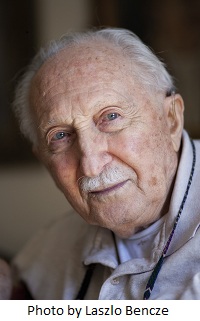The “Fellow Revocation Policy” was announced by president, Margaret A. Hamburg:
The governing body of the American Association for the Advancement of Science, founded 1848, voted Saturday to enact a policy under which an elected AAAS Fellow’s lifetime honor can be revoked for proven scientific misconduct or serious breaches of professional ethics.
The AAAS Council adopted and approved the new policy that includes procedures AAAS will follow in considering the revocation of an elected AAAS Fellow’s status. The action came during a special meeting of the AAAS Council, a member-elected body that includes the AAAS board of directors, at AAAS’ Washington, D.C. headquarters.
The new policy will go into effect on October 15, 2018. AAAS issued a related statement on the policy and notified its membership.
Margaret A. Hamburg, AAAS president and chair of the AAAS Council, said the Fellow Revocation Policy “provides a mechanism and procedure for AAAS to consider and act to revoke the status of an elected AAAS Fellow ‘in cases of proven scientific misconduct, serious breaches of professional ethics, or when the Fellow in the view of AAAS no longer merits the status of Fellow.’”
“Harassment has no place in science,” said Hamburg. “We must do more as a scientific community to create a respectful and supportive environment for our colleagues and students. Anne Q. Hoy, “AAAS Approves Policy to Revoke Elected Fellows for Misconduct or Ethics Breach” at AAAS
According to the new policy:
Breaches of professional ethics might include sexual misconduct, racial discrimination, or other ethical violations. Sexual harassment or retaliation for declining, objecting to, or reporting harassment or other sexual conduct may constitute a serious breach of professional ethics. This policy covers professional activities wherever they take place. This includes, but is not limited to, academic buildings, laboratories, field sites, research stations, field course venues, professional meetings, or any such professional settings. This policy includes interactions with persons such as, but not limited to, colleagues, subordinates, students, teaching or research assistants or others with whom the Fellow interacts as part of the Fellow’s professional activities.
The focus here would seem to be harassment rather than research fraud. A friend tells us that what AAAS has in view is incidents like the ones we’ve noted pertaining to Francisco Ayala and Larry Krauss. Ayala was president of AAAS in 1995.
We must hope it works out that way. One worry is that the use of expulsion will grow, encompassing the expulsion of anyone who develops intellectual doubts about various current claims about which Academy members are expected to be of one mind, say, climate change, Darwinism, or whatever later becomes a shibboleth.
The difficulty is, progressives may regard honest differences of opinion about the interpretation of evidence as “unsafe” situations. For the progressive, it is harassment!
 One wonders if AAAS member Phil Skell (1918–2010), known for the “Skell rule” in carbene chemistry, would be booted for doubting the usefulness of Darwinism, later in life. We shall see.
One wonders if AAAS member Phil Skell (1918–2010), known for the “Skell rule” in carbene chemistry, would be booted for doubting the usefulness of Darwinism, later in life. We shall see.
See also: Francisco Ayala has stepped down in sexual harassment controversy at University of California Irvine
and
At Buzzfeed: Serious sexual assault allegations against celebrity physicist Lawrence Krauss